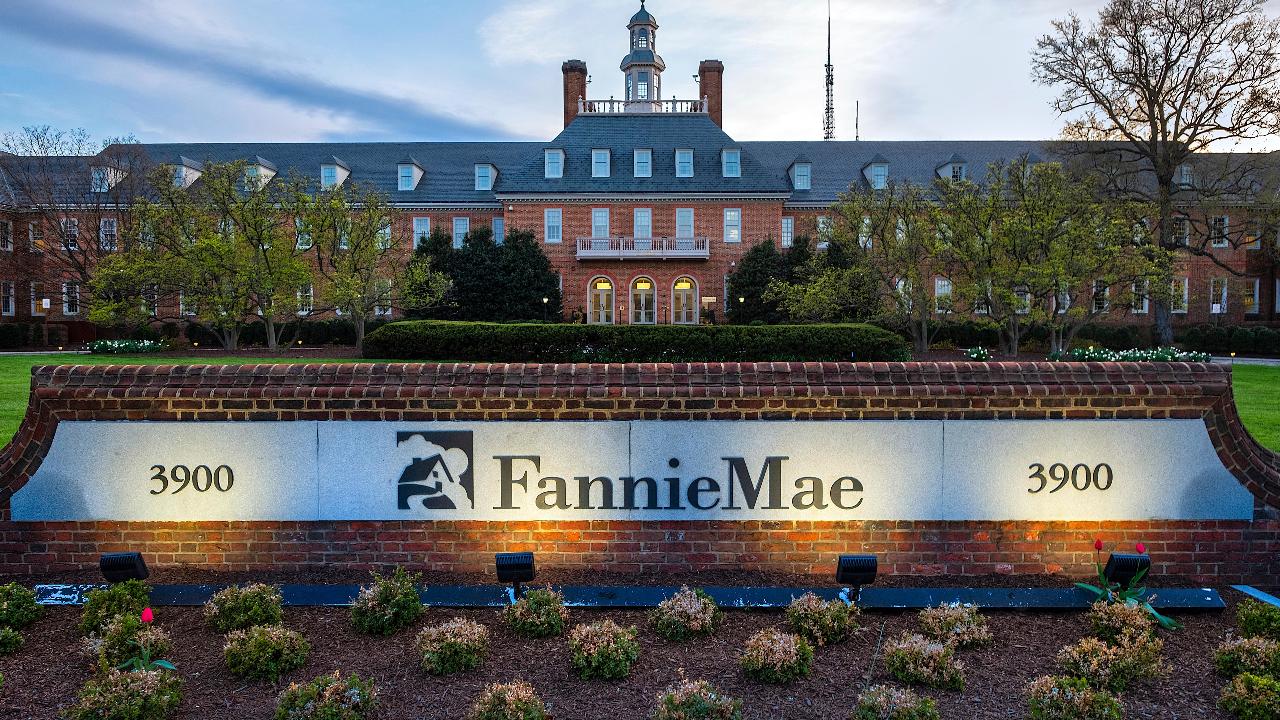Fannie, Freddie IPO could come in 2020: FHFA Mark Calabria
President Trump’s new director of the Federal Housing Finance Agency says he’s considering an initial public offering of Fannie Mae and Freddie Mac as early as the first half of next year to raise capital.
In a FOX Business exclusive, and his first interview since taking the helm of the FHFA, Mark Calabria, says that allowing Fannie Mae and Freddie Mac to simply rebuild capital by retaining earnings isn’t enough to get the mortgage giants in a strong position quickly.
| Ticker | Security | Last | Change | Change % |
|---|---|---|---|---|
| FNMA | FEDERAL NATIONAL MORTGAGE ASSOCIATION | 7.97 | -0.08 | -0.99% |
| FMCC | FEDERAL HOME LOAN MORTGAGE CORP. | 7.29 | -0.05 | -0.68% |
Right now, Fannie Mae and Freddie Mac are under control of the federal government since being bailed out by taxpayers during the financial crisis. Both send all of their profits to the U.S. Treasury, in what’s called a net worth sweep, while maintaining a thin capital cushion of $3 billion. Calabria says a sufficient amount of capital is what’s needed to exit conservatorship or government control.
Calabria is currently waiting on a plan from the U.S. Treasury on reform for Fannie and Freddie, which he expects this summer. Then he will negotiate with Treasury and hopes to come to an agreement by the fall that would then allow them to stop Fannie and Freddie from sending all profits to Treasury later this year. That is, ending the so-called net sweep. By January, Calabria wants to start the capital-building process and thinks it’s possible an IPO could occur at the earliest in the first half of next year.
Calabria maintains Fannie and Freddie should be treated like banks and have capital requirements akin to the ones the Federal Reserve requires of banks – that is, 4.5% of risk-weighted assets. He says somewhere in that neighborhood is a good bet. “How do you get Fannie and Freddie to look no worse than other large financial institutions?” he says.
Raising capital is the first step to exiting government control. From there, Calabria wants to see an entirely new housing finance system, both to improve pricing for consumers and to safeguard against another taxpayer bailout.
He favors fully privatizing Fannie and Freddie and is hoping Congress will offer additional charters to create more Fannies and Freddies that would foster competition. The idea parallels with part of Senator Mike Crapo’s plan outlined earlier this year, which would also look to put Fannie and Freddie in private hands, add additional charters and use Ginnie Mae and the full government backstop. Calabria says Crapo’s plan is a “good framework.” “It can’t be this quasi are you private or you public is there something in the middle,” says Calabria. “It really has to be private capital at risk so the taxpayer is not on the hook… If you have several of these companies you know any one of them can fail and it's a little less disruptive.”
Calabria concedes it can be difficult to get Congress to go along with a plan, but is hopeful. “It's broadly bipartisan,” he says. “I think we can come back and try to do that again. I'm hopeful that working with Chairwoman Waters in the House, Chairman Crapo in the Senate, I think that there are some areas for agreement. It's not going to be easy, but I think that there are some areas we can work on.”
If lawmakers aren’t able to pass something he will take action unilaterally. “Well I think I'm actually obligated to,” he says. “As far as I see it, I don't really
have any choice but to fix them and get them out because that's what the statute demands.”
Part of safeguarding the system also means ensuring Fannie and Freddie play by the same rules as the private sector. Calabria says that means making sure the mortgage giants are held accountable to the same rules, including the qualified mortgage rule. The qualified mortgage rule went into effect as a result of the housing crisis and strengthens underwriting standards for mortgages – except that Fannie and Freddie are exempt from the rule. Calabria says that means they are allowed to make riskier loans than what is allowed under the qualified mortgage rule. He believes the mortgage giants should be subject to the rule and hopes to work with the Consumer Financial Protection Bureau to change that.
Calabria thinks his policy approach still ensures availability of mortgages and that mortgage rates will stay where they are currently, barring action from the Federal Reserve. “We’re going to continue to have I think to me historically low mortgage rates for next number of years,” he says.
CLICK HERE TO GET THE FOX BUSINESS APP
But bringing private capital into the housing finance system could spell higher mortgage rates since private companies are in business to make money and chase higher returns that could lead to higher financing costs and higher mortgage rates.
Calabria is more concerned about affordability due in part to low housing supply. He wants to encourage more single family homes to be built, but also wants to ensure it’s stable and sustainable. “One of the lessons from last time around is we got a lot of people on housing and they weren't able to stay in the housing,” he says. “So how do we make sure that if there's another downturn … that homeownership or is sustainable.”




















